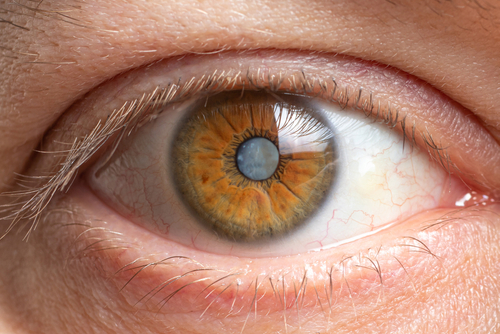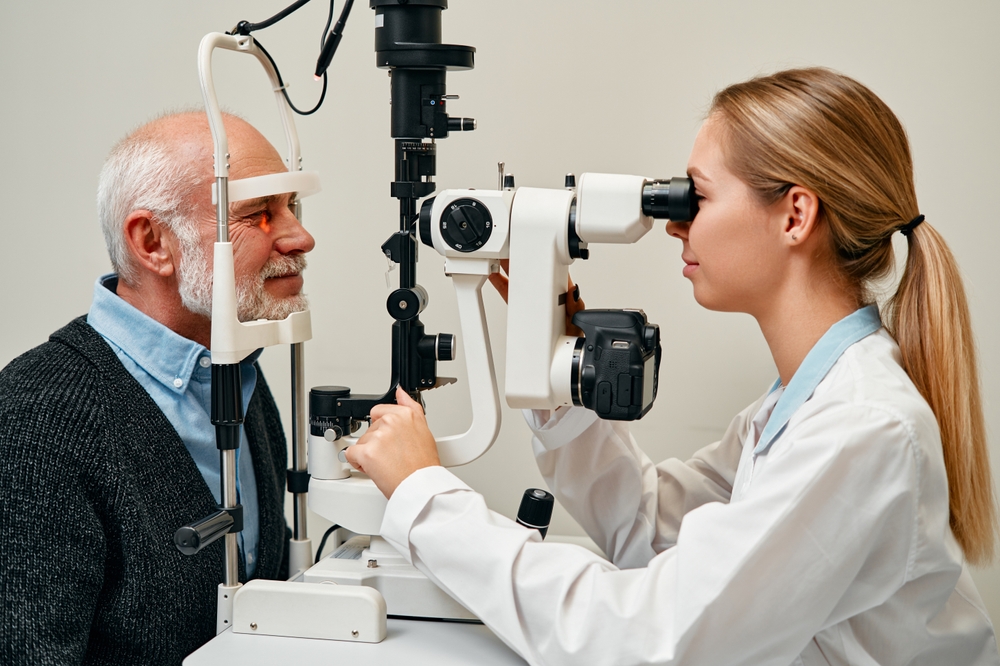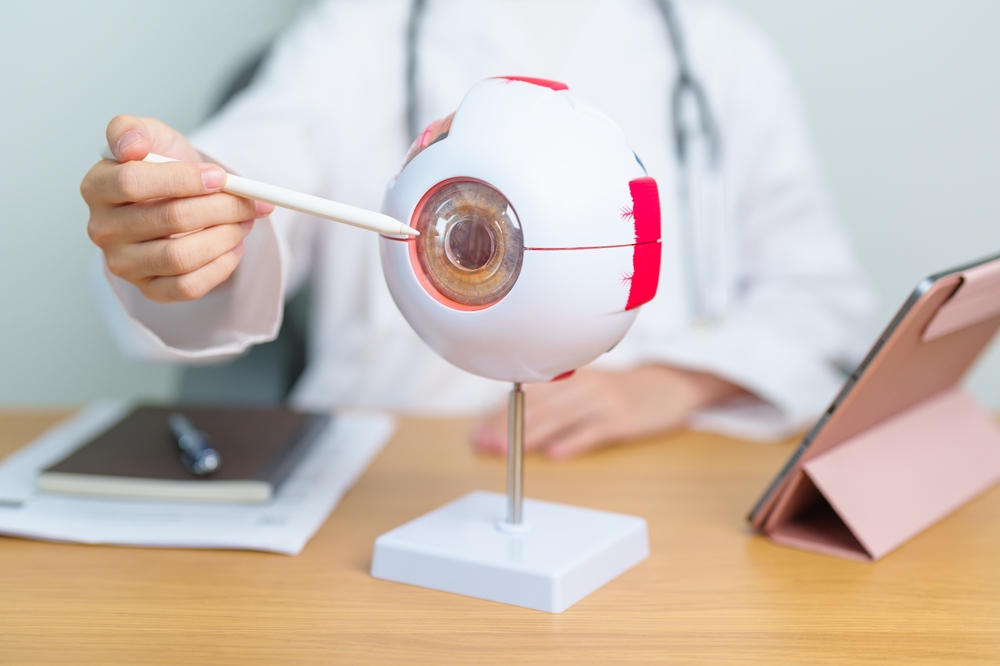
No matter what your age, good eye care is essential. Regularly scheduling eye exams and taking care of your eyes by getting the proper nutrients and protecting them is the best way to maintain good vision.
However, as you age, eye care becomes even more important as your risk for eye conditions increases. Many eye conditions are age-related, meaning once you get above a certain age, you’re at risk of developing them.
To continue to have good vision as you get older, you need to have more frequent eye exams. It’s also important to understand what eye conditions you’re at risk for and how you can lower your risk. Keep reading to discover how your eye care needs change as you get older and what that can mean for your vision!
How Your Vision Changes as You Age
Your body goes through many changes as you age. One of the most common age-related vision changes is presbyopia.
Presbyopia occurs as your eye’s natural lens becomes less flexible, making it harder to see up close. Most adults begin to experience some degree of presbyopia after they turn 40.
Reading glasses are the most common treatment, as they can help you see better up close by magnifying what you’re looking at. Some vision correction procedures can correct presbyopia.
However, presbyopia is very normal and nothing to be concerned about. When you develop presbyopia, though, it’s a good indication that it’s time for more intensive eye care.
Aging can change other structures in your eye and cause more severe eye conditions. Many of these eye conditions can lead to total vision loss when left untreated.
Age-Related Eye Conditions
There are many age-related eye conditions, with some of the most common being:
Cataracts
Cataracts form in the eye’s natural lens when the lens becomes cloudy. This tends to happen over a long period, but the cloudier the lens becomes, the harder it becomes to see.
Luckily, you can remove cataracts by having cataract surgery, eliminating your natural lens. Your lens is then replaced with an intraocular lens (IOL).
Many premium IOLs even offer the option to correct presbyopia and refractive errors, helping you achieve clearer vision and reducing dependence on visual aids.

Glaucoma
Glaucoma refers to eye conditions that cause damage to your optic nerve. When your optic nerve becomes significantly damaged, you’ll develop tunnel vision as you lose more and more of your peripheral vision.
This is almost always caused by a buildup of pressure in the eye, which can occur when the fluid that fills the eye can’t drain properly. Glaucoma usually has no early symptoms, meaning patients don’t realize they have it until irreversible and permanent vision loss has already occurred.
The first symptoms for patients are usually the beginnings of vision loss. This vision loss cannot be reversed, which is why glaucoma is called the Silent Thief of Sight. Eye exams are the only way to detect glaucoma before you experience any vision loss so the condition can be diagnosed and treated.
Diabetic Retinopathy
Diabetic retinopathy occurs when the blood vessels that supply the retina begin to grow abnormally, swell, and leak due to high blood sugar levels caused by diabetes. This damages your retina and can lead to vision loss.
Like glaucoma, there are no early symptoms, and any damage to the retina cannot be fixed. Early diagnosis and treatment are needed to prevent further damage and vision loss.
Age-Related Macular Degeneration
Age-related macular degeneration (AMD) occurs when the retina’s center, called the macula, thins out, usually over a long period. This is called dry age-related macular degeneration, and it causes gradual vision loss.
Wet age-related macular degeneration is similar to diabetic retinopathy as it causes blood vessels under the macula to grow abnormally, swell, and leak. This causes more rapid vision loss.
The Increased Importance of Eye Exams
By the time you turn 40, you should schedule eye exams regularly, which for most means at least once every two years. You may even need to have eye exams more frequently if you’re at higher risk for eye conditions.

You may be at higher risk if you have a family history of eye conditions or diabetes, along with some other medical conditions. Talk to your eye doctor at St. Luke’s at The Villages about your risk, and they can recommend the appropriate eye exam schedule to follow, depending on your age.
Many age-related eye conditions don’t present early symptoms. They also can cause permanent vision loss.
While most of these eye conditions don’t have a cure, they are treatable. Treatment can significantly slow their progression and sometimes stop further vision loss.
Your ophthalmologist can also diagnose these eye conditions before they cause vision loss during an eye exam. For this reason, when you’re above 40, your eye exams may become more thorough.
In addition to dilated eye exams, your eye doctor may use specialized imaging equipment like Optical Coherence Tomography (OTC). This will allow them to see the earliest signs of damage to your retina and optic nerve so they can diagnose you in the earliest stage of whatever disease you may have.
Keeping Your Eyes Healthy
In addition to eye exams, there are also some things you can do to minimize your risk of developing eye conditions. Your risk for eye conditions can increase if you have diabetes, high blood pressure, high cholesterol, sun damage to the eyes, or if you use tobacco.
To lower your risk for eye conditions and to stay up to date on your eye care needs as you age, you can do a few things:
Eat Healthy and Stay Hydrated

Eat a healthy diet rich in eye-healthy foods like fish, seeds, and dark leafy greens. It’s also important to stay hydrated.
Talk to your eye doctor about your nutritional needs and what vitamins and supplements might benefit your eyes.
Stay Physically Active
Stay active, making sure you exercise and are moving enough every week. Even walking for thirty minutes a few days a week can improve your health, aiding blood circulation to your eyes and all over your body.
Quit Smoking if You’re a Smoker
Quit smoking and using tobacco products. The sooner you stop, the better; the older you get, the harder it is. Smoking is incredibly bad for your eyes and makes you more likely to develop age-related macular degeneration, glaucoma, cataracts, and diabetic retinopathy, among others.
Use Proper Protection Around the Sun
Protect your eyes from harmful UV rays in sunlight. Wear sunglasses marked as blocking at least 99% of UV rays.
You can’t eliminate your risk for eye conditions as some risk factors, including age, are out of your control. However, following these tips can lower your risk and help you be healthier.
The better you care for yourself and your eyes when you’re young, the healthier your vision will be. Remember to include scheduling eye exams regularly to keep your eyes healthy at any age.
Do you need to make your eyes a priority? Take the next step by Scheduling an appointment at St. Luke’s at The Villages in Lake Sumter Landing, FL, today!









